At TheHealthBoard, we're committed to delivering accurate, trustworthy information. Our expert-authored content is rigorously fact-checked and sourced from credible authorities. Discover how we uphold the highest standards in providing you with reliable knowledge.
What is Medical Biotechnology?
Medical biotechnology is the use of living cells and cell materials to research and produce pharmaceutical and diagnostic products that help treat and prevent human diseases. Most medical biotechnologists work in academic or industrial settings. In academic laboratories, these professionals conduct experiments as part of medical research studies; industrial biotechnologists work toward developing drugs or vaccines. The medical biotechnology field has helped bring to market microbial pesticides, insect-resistant crops, and environmental clean-up techniques.
Examples of discoveries in the field of medical biotechnology include insulin and growth hormone. Both discoveries were the result of research studies related to deoxyribonucleic acid (DNA). Many scientists in the medical biotechnology field study genetic engineering. This involves isolating, identifying, and sequencing the human genes to determine their functions. Work in this arena may possibly lead to cures for certain diseases, such as Parkinson’s and Alzheimer’s syndrome.
Academic biotechnologists work in universities, hospitals, government labs, or nonprofit organizations. Some may conduct research on studies they began in graduate school. Others may initiate new areas of medical biotechnological research.

Industrial biotechnologists typically work for private businesses that are conducting applied research, which is directed toward solving a particular medical issue. Their findings often lead to new pharmaceutical drugs and medical treatments. Work in the industrial field tends to be geared more toward the financial goals of the business that employs these scientists. Industrial biotechnologists may be required to explain or defend their work to non-scientists who have decision-making powers in the business.

Entry-level jobs in the medical biotechnology field fall in several categories. These include research and development, quality control, clinical research, manufacturing, regulatory affairs, information systems, and administration. Professionals entering the field may begin as research assistants, quality control analysts, clinical coordinators, or biostatisticians.

There generally are two paths for graduate study. Prospective biotechnologists can either pursue a master’s degree followed by a doctorate, or enroll in a joint medical doctorate/doctorate of philosophy (MD-PhD) program. Getting a master’s and PhD in the field of medical biotechnology usually takes about six years. Students in this program pick a specialty such as genetics, pathology or bioinformatics. The MD-PhD path usually takes eight years, and students receive both clinical and research skills.
AS FEATURED ON:
AS FEATURED ON:










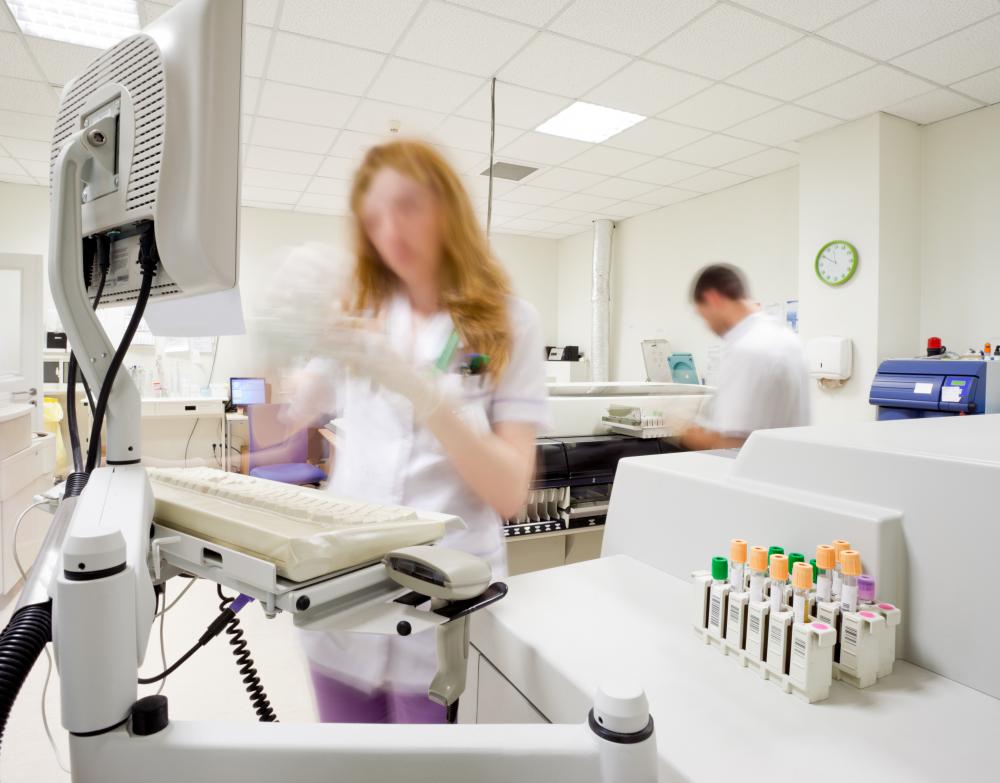

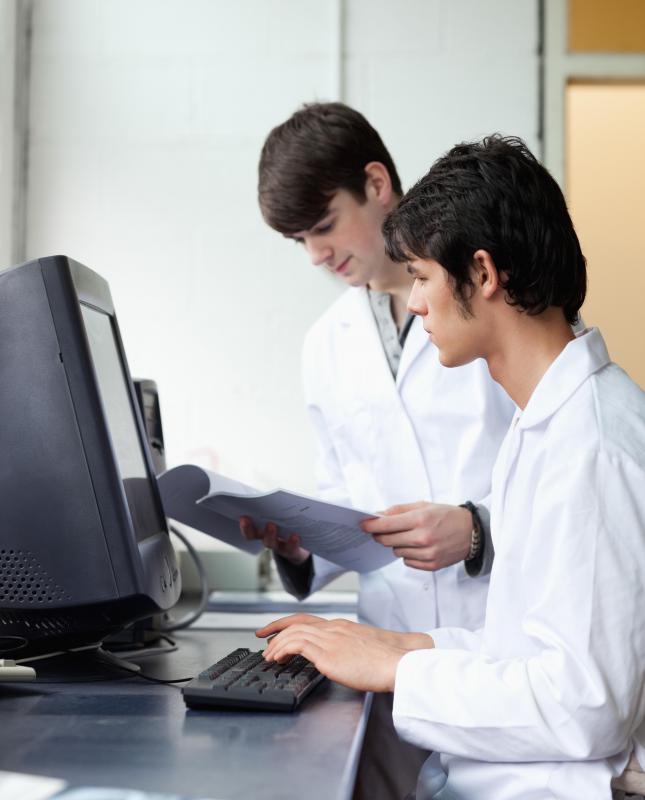
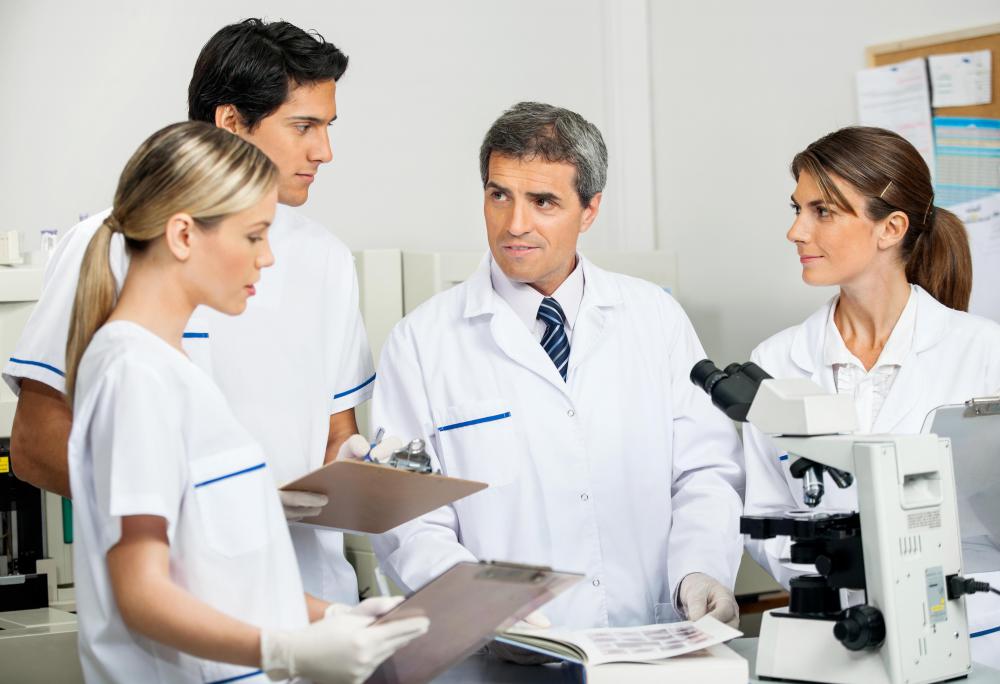
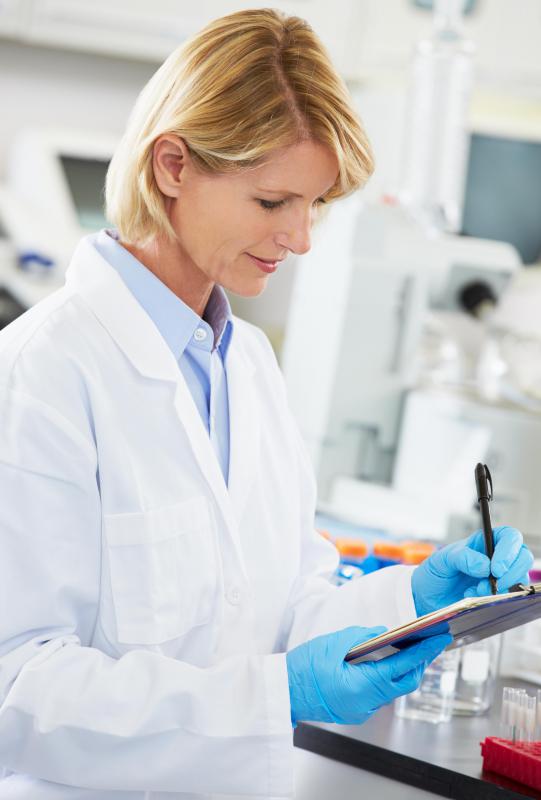
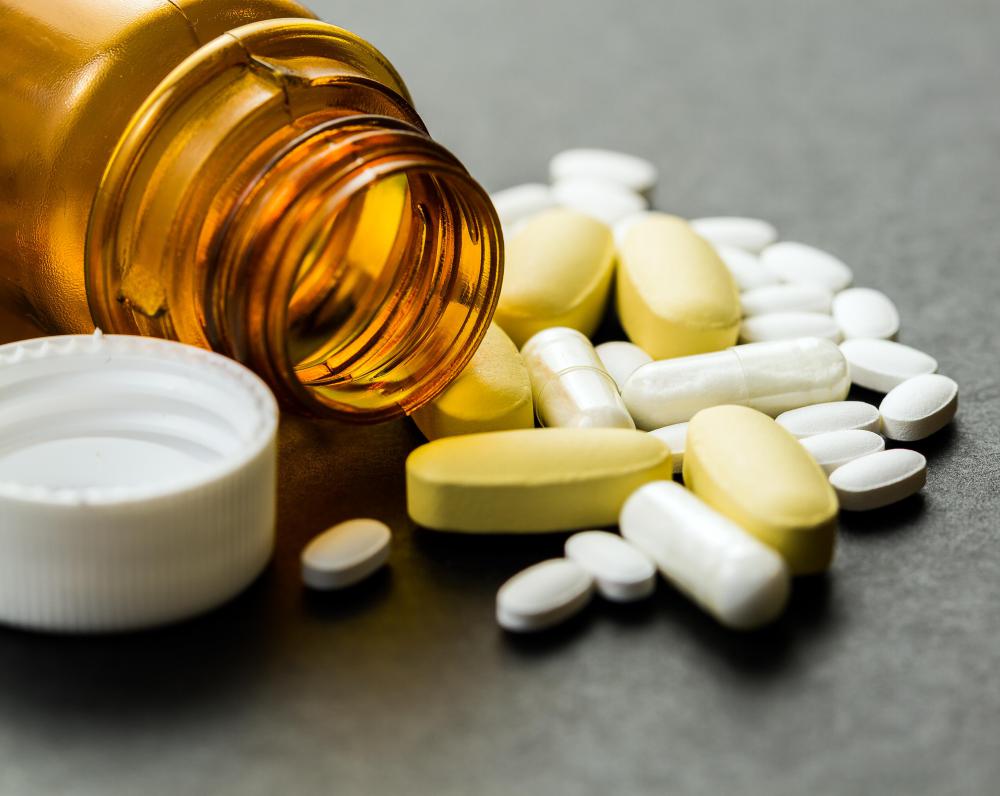

Discussion Comments
Can we study medical biotechnology after completing school?
What is the difference between m.sc and m.tech in biotechnology syllabus wise?
How does a two semester course of this at a vocational school work? (EVIT Medical Biotechnology) I don't understand.
Can bsc biotechnology students do msc in medical biotechnology?
@Charred - Another medical application of biotechnology that has come under fire has to do with genetically engineered crops. Most of the food sold on grocery store shelves has been modified in some way, and I don’t think most Americans are aware of this.
The FDA says its safe, but I know of some purists who insist that food should not be genetically altered in any way—even in poor nations when altering the crop yield would produce a better and more disease-resistant harvest. Critics say that these genetically modified foods could introduce toxins into the food or change the nutrient density in a way that’s not healthful in the end. I think the stuff is OK myself (as far as I know I’m not sick).
@NathanG - I’m not an expert, but in my opinion any technology which uses living cells to create products would fall into the category of medical technology. In the case of biofuels, that would be considered industrial biotechnology. The end product is for fuel, not for consumption. Whether the technology is efficient or not is another story.
Biofuels is still an area of intense study, but has come under criticism because it supposedly wastes crop yields on fuel production when it could be used for food. However, it’s a technology that’s still in its infancy. I’m all for continued research, and I think over time the scientists will become more efficient and make the process worth the time and labor involved.
I know that biofuels are a hot topic these days as people are looking for alternative energy sources. Would this fall into the category of biotechnology as well?
My wife majored in biochemistry in college. This is typically one path that you can use as a prerequisite to get into medical technology. Although she doesn’t work in a lab, she did wind up working as pharmacy technician so she does have some exposure to the medical field.
I have a degree in this field. It is a wonderful field to get into if you like helping people medically, but don't want to deal with all the blood and guts. It is continually growing and there is job security because, let's face it, we always need cures for diseases!
Post your comments